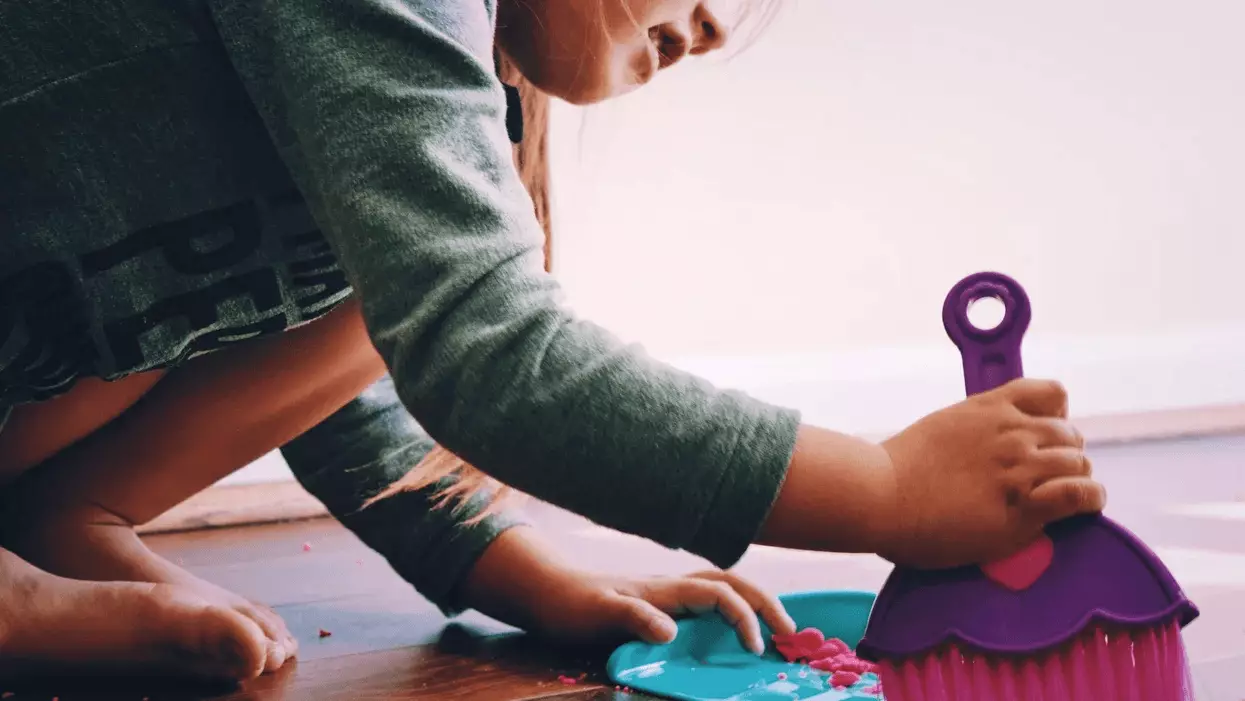In many households, the sight of a toddler in action often resonates more with chaos than cooperation. Nevertheless, beneath the playful destruction, there lies a strong desire to be part of the ongoing household routine. Engaging toddlers in everyday chores not only actively includes them but also cultivates a sense of accomplishment and responsibility. This article explores the merits of toddler involvement in housework and presents practical strategies for parents to foster this collaborative spirit while basking in the benefits of children’s enthusiasm.
Children thrive on activities that give them a sense of belonging; being incorporated into household tasks satisfies their innate desire to contribute. Though toddlers may not execute chores as precisely as adults, their involvement encourages pride in their capabilities. When parents allow their little ones to participate in chores, it can significantly enhance their cooperation and behavioral patterns. This practical engagement can turn an ordinary activity into a learning experience, fostering important skills such as responsibility and diligence.
Moreover, actively involving toddlers in household tasks can substantially lighten the load for parents. Completing chores together can be more enjoyable and meaningful than simply rushing through them alone. Recognizing the intrinsic value of these moments allows parents to cherish the quality time spent with their children while accomplishing necessary tasks.
Analyzing which household chores are appropriate for toddlers is crucial. Parents should look closely at their to-do lists and identify manageable activities. The goal is to select tasks that strike a balance between safety, engagement, and simplicity. While toddlers may not have the dexterity or strength to handle more complex chores, smaller tasks can provide them with opportunities to contribute meaningfully.
Starting with simple jobs such as unloading lightweight dishes can be a good entry point. Parents should demonstrate safe methods of handling dishes, emphasizing the importance of care while working, especially when it comes to fragile items. In these moments, even accidents, like a shattered dish, can serve as valuable teaching moments about cautious behavior.
Incorporating fun into household chores encourages greater toddler participation. Laundry, for example, offers clear opportunities for engagement. Young children can accompany parents in folding clothes, matching socks, or even carrying folded items to the appropriate rooms. Keeping toddlers’ clothes at their height encourages independence, allowing them to take ownership of their belongings by putting them away.
Another fun task is sweeping, a natural fit for toddlers who often crave movement and purpose. Providing them with a miniature broom and dustpan instills confidence and self-sufficiency as they clean and organize their environment. This task also doubles as an energy outlet, keeping them busy after mealtime while affirming their involvement in housework.
Outdoor chores can be captivating for toddlers. Washing the car, for example, presents an exciting adventure utilizing large motions and allowing for creative play with soap and bubbles. This activity teaches children about washing and caring for their own possessions, such as tricycles or bikes, fostering responsibility and nurturing their sense of ownership.
Additionally, involving toddlers in caring for plants or pets is another excellent strategy. Watering plants can be framed as an important task; parents should teach children the signs of thirsty plants and how to administer water properly. When caring for pets, toddlers experience joy and a sense of responsibility, as they can assist with feeding and grooming.
The kitchen can be an inviting space for toddlers, particularly during food preparation. Allowing little ones to help mix ingredients or measure them in pre-portioned amounts creates an enjoyable environment. Parents should invite children to assist in cooking as long as they remain interested; even brief involvement lays the foundation for learning basic skills in the future while creating cherished memories.
Furthermore, age-appropriate dusting activities empower toddlers to see the tangible results of their efforts. Tasks such as dusting surfaces or baseboards can be gratifying since children can easily visualize the outcome of their actions.
While parents often might find it easier to complete tasks independently, involving toddlers helps develop their responsibility and further cements familial bonds. It is essential to emphasize that these activities should remain enjoyable and should never feel forced. Providing toddlers with opportunities to help fosters a long-term understanding of teamwork within the family.
Ultimately, while the initial involvement of toddlers in household chores may appear to create more work, the long-term benefits—cultivating responsibility, independence, and family unity—are invaluable. Establishing these habits early ensures that, as children grow, the transition to engaged, helpful family members is seamless. By embracing the chaos that comes with toddler participation, we invest in their growth and development as active contributors to the family unit.

